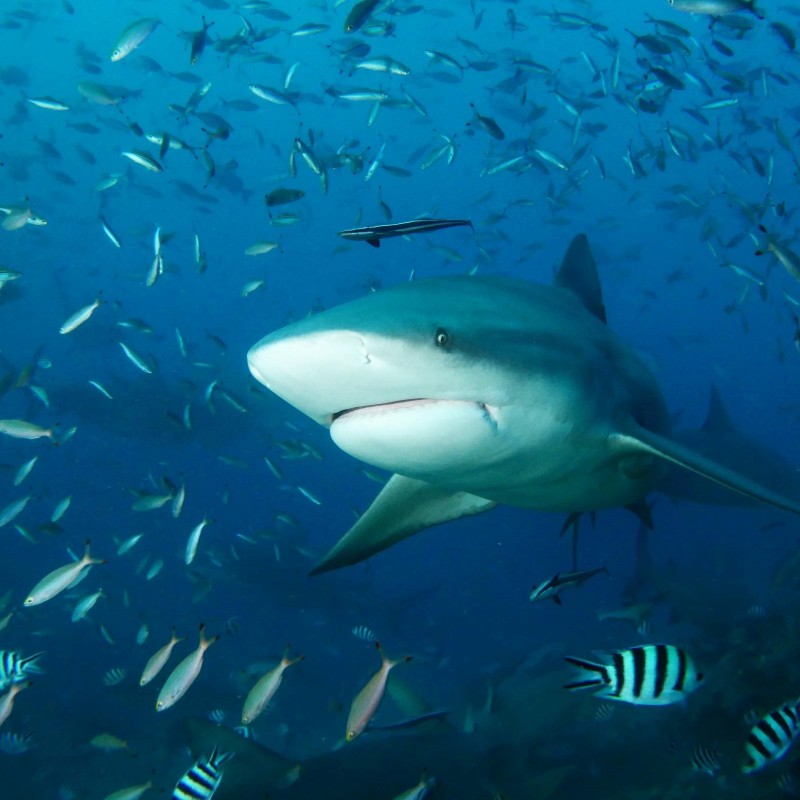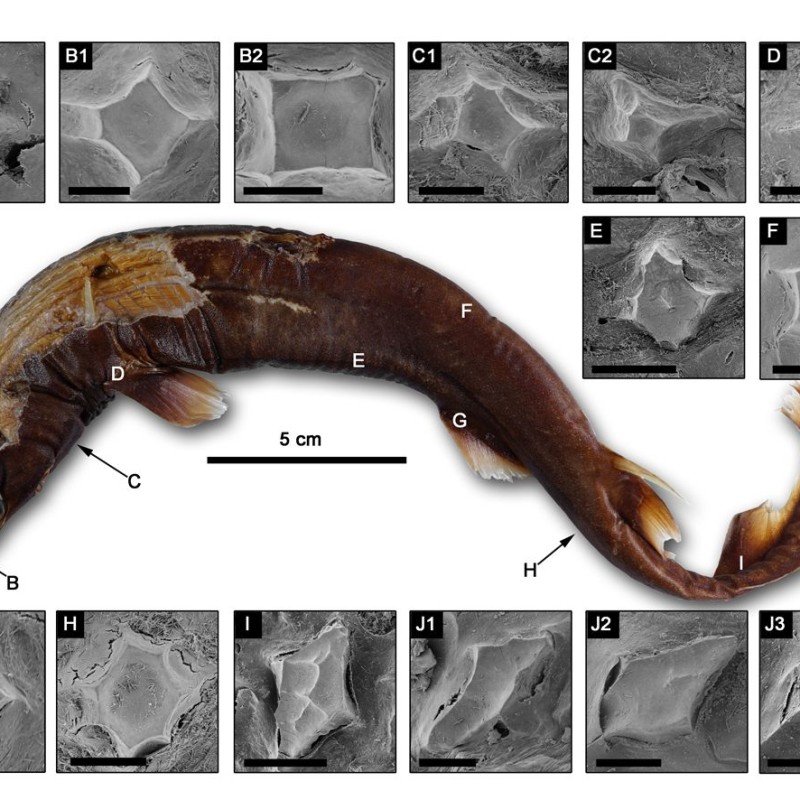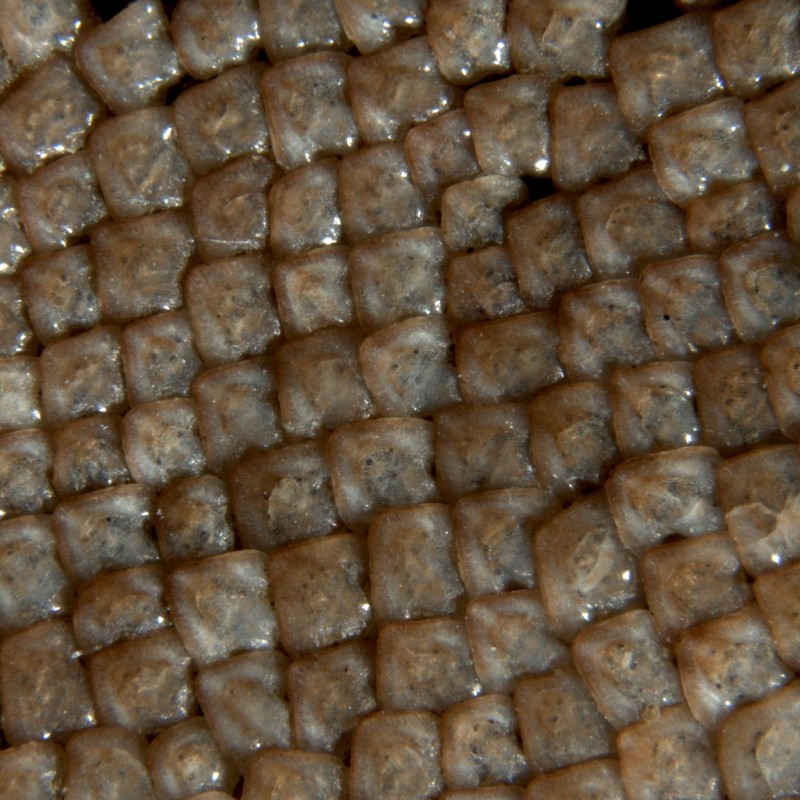"Rise from the dead": supposed mass extinction of sharks 19 million years ago reinterpreted
10. December 2021
Mass extinction events are among the most exciting areas of research. One particularly dramatic event, which apparently claimed
the lives of a large proportion of deep-sea sharks, was recently documented in deep-sea cores. But not every catastrophe stands
up to critical review, as new study results from NHM Vienna show.
Sharks have a 400 million year track record of
defying all major mass extinction events. In addition to the most drastic environmental catastrophes at the Permian-Triassic
boundary (about 252 million years ago) and the Cretaceous-Paleogene boundary (about 66 million years ago), a far more dramatic
extinction event for deep-sea sharks has recently occurred.
Two U.S. scientists recently reported in the journal Science a decline in shark diversity 19 million years ago with an incision in deep-sea shark abundance of over 90%. Due to the relative stability of the deep sea to short-term environmental changes, this enormous decline in deep-sea sharks is both alarming and surprising.
Researchers at the Natural History Museum Vienna and some international colleagues were skeptical, however, because they saw no such event in their data. "In several projects funded by the Austrian Science Fund (FWF), we studied marine sediments of the same age in Italy, Greece, Turkey, Tanzania, India, Sri Lanka and Oman. Nowhere was there evidence of an extinction event 19 million years ago," said study co-author Dr. Mathias Harzhauser, head of the Geological-Paleontological Department at NHM Vienna.
The data used by the US scientists were based on shark scales from a few grams of sediment from deep-sea cores. However, the U.S. researchers missed the fact that the input of sand and mud in the southern Pacific Ocean increased dramatically exactly at the time of the postulated event. As a result, there were suddenly far fewer fossils in the same sample size, which was misinterpreted as a dramatic extinction event. "We simply corrected the original data by sedimentation rates, and it turned out that the supposed extinction event was an artifact. The sharks in the deep sea were not particularly impressed by the global climate changes of the Miocene," explains study leader Iris Feichtinger, MSc. from NHM Vienna.
Article:
Comment on "An early Miocene extinction in pelagic sharks". Feichtinger I., Adnet S., Cuny G., Guinot G., Kriwet J., Neubauer T.A., J. Pollerspöck J., Shimada K., Straube N., Underwood C., Vullo R. & Harzhauser M. Science: doi: 10.1126/science.abk0632
https://www.science.org/doi/10.1126/science.abk0632
Two U.S. scientists recently reported in the journal Science a decline in shark diversity 19 million years ago with an incision in deep-sea shark abundance of over 90%. Due to the relative stability of the deep sea to short-term environmental changes, this enormous decline in deep-sea sharks is both alarming and surprising.
Researchers at the Natural History Museum Vienna and some international colleagues were skeptical, however, because they saw no such event in their data. "In several projects funded by the Austrian Science Fund (FWF), we studied marine sediments of the same age in Italy, Greece, Turkey, Tanzania, India, Sri Lanka and Oman. Nowhere was there evidence of an extinction event 19 million years ago," said study co-author Dr. Mathias Harzhauser, head of the Geological-Paleontological Department at NHM Vienna.
The data used by the US scientists were based on shark scales from a few grams of sediment from deep-sea cores. However, the U.S. researchers missed the fact that the input of sand and mud in the southern Pacific Ocean increased dramatically exactly at the time of the postulated event. As a result, there were suddenly far fewer fossils in the same sample size, which was misinterpreted as a dramatic extinction event. "We simply corrected the original data by sedimentation rates, and it turned out that the supposed extinction event was an artifact. The sharks in the deep sea were not particularly impressed by the global climate changes of the Miocene," explains study leader Iris Feichtinger, MSc. from NHM Vienna.
Article:
Comment on "An early Miocene extinction in pelagic sharks". Feichtinger I., Adnet S., Cuny G., Guinot G., Kriwet J., Neubauer T.A., J. Pollerspöck J., Shimada K., Straube N., Underwood C., Vullo R. & Harzhauser M. Science: doi: 10.1126/science.abk0632
https://www.science.org/doi/10.1126/science.abk0632
Die Menge an Schuppen in den Bohrkernen wurde vereinfacht als Maß für die Häufigkeit der Tiere gewertet.
(c) NHM Wien, Iris Feichtinger
(c) NHM Wien, Iris Feichtinger




